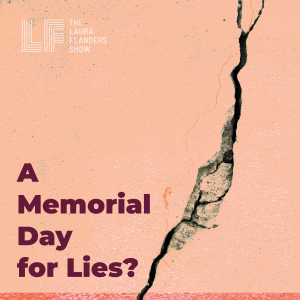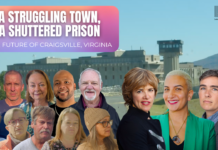A Memorial Day for Lies
To download, please subscribe. To download a single episode, click share in the podcast player above.
A special thanks to our Patreon community for supporting us through this difficult time and making it possible to keep this content free for everyone.
So which will it be? Will this disaster spark a shift for the better? Or will the deadly myths white Americans tell ourselves survive Covid-19?
Memorial Day messaging bodes ill.
I want to believe that after the coronavirus crisis, US society will emerge sobered, smarter and more aware of the ways that inequality not only weakens our body politic, but claims real bodies. I want to believe that after 100,000 casualties, we will understand that individualism, like war and white-ism and male-ism and American exceptionalism, offers only leaky protection against disease.
Instead, I’m seeing a whole lot of illusions live on. Like the illusion of American innocence and safety. Today, just weeks after African Americans Ahmaud Arbery and Breonna Taylor were brutally killed—one lynched by a mob while jogging in Georgia, the other shot by cops in her home after a long day at work as a Kentucky EMT— David Brooks writes blithely about Covid-19: “This is the first time that a menace has crossed our borders, upended the daily lives of every American and rocked our ancient sense of safety.”
To make it worse, Brooks’ piece is headlined “The First Invasion of America,” as if colonial genocide never occurred.
Are US deaths from coronavirus our generation’s Pearl Harbor? No. As novelist Viet Thanh Nguyen tweeted, that was a sneak attack. “COVID-19 deaths in the USA are mostly self-inflicted by our government’s incompetence.” And all Americans are not in the same boat.
More Americans have died from this coronavirus than died in the Vietnam War, the Gulf War, the Afghanistan War and the Iraq War combined. That’s true, and tallying up deaths that way packs a punch, but the majority of the dead in all of those wars were Vietnamese, Afghan and Iraqi. People who never voted or rallied for the war or made money off it.
To use a term from intersectionality scholar Kimberlé Crenshaw, these sort of war metaphors “unmatter” non-Americans, just as our reporting on Covid-19 is “unmattering” black and brown lives.
American Memorial Day is most intentionally not Armistice Day—the day in November on which most of the world marks the end of a war that was supposed to end all wars. Instead of memorializing peace, it messes with our minds, manipulating sympathy for veterans to misremember America’s wars and war-mongering. Which is exactly what I’ve always hated about Memorial Day, and it’s what leads me to think that this virus may do more damage to our bodies than to our politics. If only we could have a Memorial Day for lies.

















